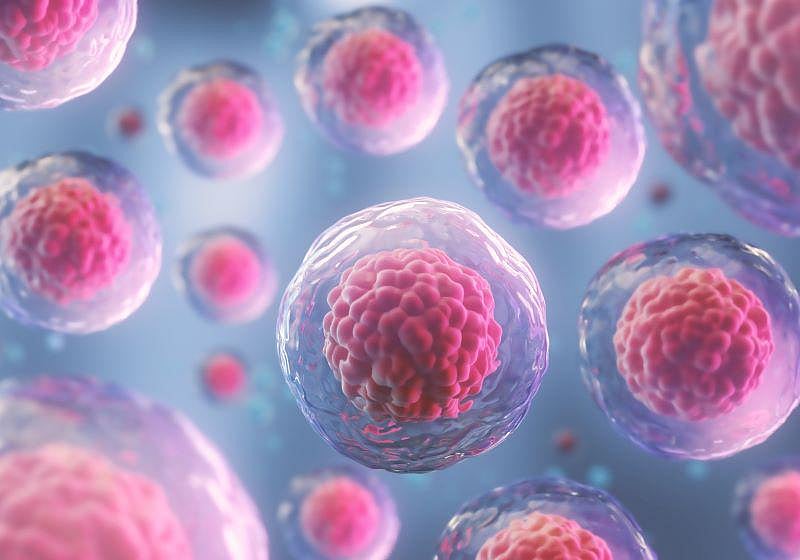Get Healthy!

- Posted August 3, 2022
Scientists Restore Some Function to Pig Tissues 1 Hour After Death
Minutes after a heartbeat stops, a massive series of disastrous events triggered by lack of blood flow begins to destroy a body's cells and organs.
This chain of events had been thought to be inevitable and irreversible. Now, a new animal study shows that heart death mustn't necessarily spell a quick end to the rest of the body.
The researchers restored blood circulation and other cellular functions in the bodies of pigs that had been dead for a full hour, using a new drug cocktail designed to reverse the various catastrophic effects that come with the loss of blood flow.
"Specifically, we restored some functions of cells across multiple vital organs that should have been dead without our intervention,"said senior researcher Dr. Nenad Sestan, a professor of neuroscience at Yale School of Medicine in New Haven, Conn. "These cells are functioning hours after they should not be, and what this tells us is that the demise of cells can be halted and their functionality restored in multiple vital organs, even one hour after death."
Still, it's not quite raising the dead.
The process did not create the sort of organized electrical activity in the pigs' brains that would indicate consciousness. It also did not reverse all the organ damage that occurred during that hour of death, the researchers reported Aug. 3 in the journal Nature.
But the researchers think their technology would be a huge step forward in preserving individual organs for transplant and expanding the availability of donor organs.
"Within minutes after the heart stops beating, there is a whole cascade of biochemical events triggered by a lack of blood flow,"said co-researcher Dr. Zvonimir Vrselja, an associate research scientist in neuroscience at Yale. "Oxygen and nutrients that the cells need for survival are stopped, and this begins to destroy cells."
"What we showed is that this progression toward massive permanent cell failure and death does not happen so quickly that it cannot be averted or possibly corrected,"Vrselja noted during a Tuesday media briefing.
The technology, called OrganEx, consists of a cocktail of 13 different drugs aimed at reversing most of those events that occur after the heart stops, Vrselja said.
The cocktail includes anticoagulants to restore the function of blood vessels, drugs that ward off cell death, and anti-inflammatories to limit tissue damage caused by an immune system responding to the body's demise, Vrselja explained.
OrganEx also includes a pumping system designed to restore and maintain blood flow while adding the drug cocktail to the bloodstream.
"When the heart stops beating, organs begin to swell, collapsing blood vessels and blocking circulation,"Vrselja said. "We had to develop a perfusion system that can circumvent that. Basically the whole technology is like ECMO on steroids, allowing us to open blood circulation throughout the whole body."
For the study, the pigs were sedated and anesthetized and then induced to have fatal cardiac arrest. After an hour at room temperature, they were then placed on the OrganEx system.
Six hours after treatment with OrganEx, researchers found that key cellular functions were active in the heart, liver and kidneys of the pigs, and that some organ function had been restored.
For example, the heart showed evidence of electrical activity and retained its ability to contract. The researchers also saw organ- and cell-specific gene expression patterns that indicated repair processes underway within the revived body.
The researchers compared the results of OrganEx against pigs treated with ECMO (extracorporeal membrane oxygenation system). ECMO is used in hospitals to keep blood oxygenated; it's a common lifesaving treatment in severely ill COVID-19 patients.
Organs in pig bodies treated with OrganEx displayed fewer signs of hemorrhage or swelling than those put on ECMO, the results showed.
The new study built upon earlier Yale-led research that restored circulation and certain cell functions in the brain of a dead pig, using technology then called BrainEx. The new study modified BrainEx so that it could be used to restore circulation and cell function to the entire body.
The researchers didn't perform this full-body test as a means of potentially preserving organs inside a body for transplant, they noted.
Instead, this experiment was designed to show that the OrganEx technology would "work its remarkable effects on a whole range of organs, and it's easiest to show that all at once,"co-researcher Stephen Latham, director of the Yale Interdisciplinary Center for Bioethics, said during the media briefing.
"The long-term goal would not be to preserve organs in a body,"Latham continued. "If this were going to be applied clinically, I think it would be done organ by organ."
Latham gave the example of a newborn with a twisted bowel who needs a transplant to be able to digest food.
"This technology might make it possible to transport a donor organ across the country for a period of hours and still have it not be damaged," Latham said.
The technology also might be used to minimize damage to organs or tissues in a living person who's suffered a heart attack or stroke, the study authors added.
"It's not that this could never be applied to a human being who had a heart attack or drowned and therefore suffered ischemic damage. It's just that in order to do that, there's a great deal more experimentation that would be required,"Latham said.
"The salvaging of organs and the maintenance of organs for transplant is, I think, a much closer and much more realistic clinical goal that could be based on this study. Still, there's much more work to be done there, too,"Latham added.
More information
The Mayo Clinic has more about ECMO.
SOURCES: Nenad Sestan, MD, PhD, professor, neuroscience, Yale School of Medicine, New Haven, Conn.; Zvonimir Vrselja, MD, PhD, associate research scientist, neuroscience, Yale School of Medicine, New Haven, Conn.; Stephen Latham, JD, PhD, director, Yale Interdisciplinary Center for Bioethics, New Haven, Conn.; Nature, Aug. 3, 2022
